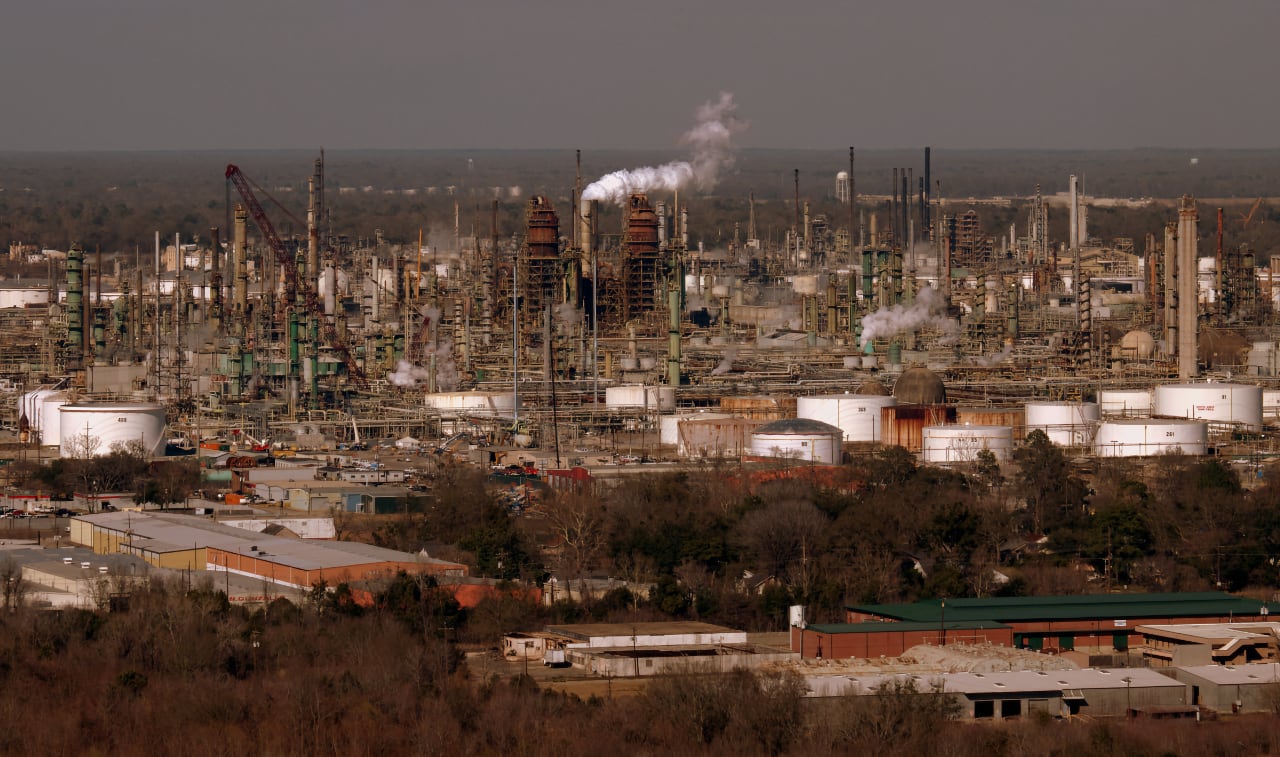Displaying items by tag: environmental racism
Juneteenth: An Urgent Call for Climate Solutions
 ExxonMobil’s Baton Rouge, LA refinery, Feb. 11, 2016. Later that day, shortly before midnight, a massive fire broke out, bathing the night sky in an orange glow visible for miles around.
ExxonMobil’s Baton Rouge, LA refinery, Feb. 11, 2016. Later that day, shortly before midnight, a massive fire broke out, bathing the night sky in an orange glow visible for miles around. ![]() Jim Brown/Flickr
Jim Brown/Flickr
Generations of Black Americans have faced racism, redlining and environmental injustices, such as breathing 40 percent dirtier air and being twice as likely as white Americans to be hospitalized or die from climate-related health problems.
AMERICA TODAY — This week, NPR’s Living on Earth podcast and illustrated transcript elucidates how relevant the broader meaning and historic context of Juneteenth is for all American citizens and residents.
Host Steve Curwood discusses with Heather McTeer Toney her new book, ‘Before the Streetlights Come On: Black America’s Urgent Call for Climate Solution.’
McTeer served as the Southeast Regional Administrator of the Environmental Protection Agency in the Obama administration and is now Executive Director of Beyond Petrochemicals. She argues that the quest for racial justice must include addressing the climate emergency and that the insights of people who experienced the negative health and socio-economic impacts of the petrochemical industry must be tapped to develop solutions that will work on the ground.
- juneteenth
- environmental justice
- racial justice
- heather mcteer toney
- social justice
- racism
- air pollution
- petrochemical
- petrochemical industry
- living on earth
- npr podcast
- slavery
- history of slavery
- climate emergency
- cancer alley
- steve curwood
- public health
- environmental racism
- mississipi river
- baton rouge
- black vote
- black and brown people
- interfaith power and light
- evangelical on the right
- religious leadership
- evangelicals for the environment
Memphis City Council bans Byhalia Pipeline over aquifer contamination concerns
 Memphis residents have pushed back against the Byhalia Pipeline project. The proposed pipeline has been the subject of controversy since 2019. The joint venture project would build a 49-mile pipeline between Memphis and Mississippi and would run through several Black communities in Memphis. VALERO Memphis Refinery, shown here, is along the Mississippi River’s Lake McKellar in South Memphis. Photo by Karen Pulfer Focht
Memphis residents have pushed back against the Byhalia Pipeline project. The proposed pipeline has been the subject of controversy since 2019. The joint venture project would build a 49-mile pipeline between Memphis and Mississippi and would run through several Black communities in Memphis. VALERO Memphis Refinery, shown here, is along the Mississippi River’s Lake McKellar in South Memphis. Photo by Karen Pulfer Focht
Opponents of Memphis pipeline cite textbook examples of environmental racism
(This story was originally published by Tennessee Lookout).
Memphis City Council passed an ordinance this month protecting the Memphis Sand Aquifer after environmental activists spent nearly a year fighting to protect it against a crude-oil pipeline.
The city council passed on second reading an ordinance establishing the city government’s role in overseeing future developments in Memphis and how they may impact the aquifer, which serves as the area’s main drinking water supply.
The ordinance will be up for a third and final vote on Aug. 17.
Since 2019, environmental and racial justice advocates have protested plans to build the Byhalia Pipeline, a joint venture between Texas-based Plains All American Pipeline and Valero Energy Corporation, in a historically Black neighborhood located in Southwest Memphis. What started as criticisms turned into full-blown protests that gathered national attention and support from prominent political figures, including former Vice President Al Gore and civil rights leader the Rev. William Barber.
The council used the Federal and Tennessee Safe Drinking Water Act as an authorizing agent for local government’s ability to protect public drinking water.
The Memphis City Council first discussed legislation to protect the aquifer in May 2021 and introduced ordinances that would affect the Byhalia Pipeline.
The resolution established an Underground Infrastructure Advisory Board to review all future developments within Memphis and prohibit those that carried hazardous liquids. According to council documents, developments must not pass within 1,000 feet of the Wellhead Protection Areas, which access existing public water supplies.
Byhalia Pipeline representatives threatened to file a lawsuit against the city council if they were to pass legislation that regulated future developments, causing the council to delay the vote.
Byhalia Pipeline representatives then abandoned the project in July but said they still considered filing a lawsuit if the resolution were to pass.
Councilman Jeff Warren, who sponsored the resolution, said “lawsuits are always possible.”
Local community leaders and critics called the Byhalia Pipeline an example of environmental racism, adding that Memphis communities were already burdened by harmful environmental issues caused by nearby oil refineries, wastewater treatment facilities, industrial manufacturers and power plants.
These factors led to cancer risks four-times the national average, and any contamination of the area’s drinking water could potentially turn the area into another Flint, Michigan, a city whose water system was contaminated with lead.